Comprehensive Guide to Plant-Based Foods High in Calcium
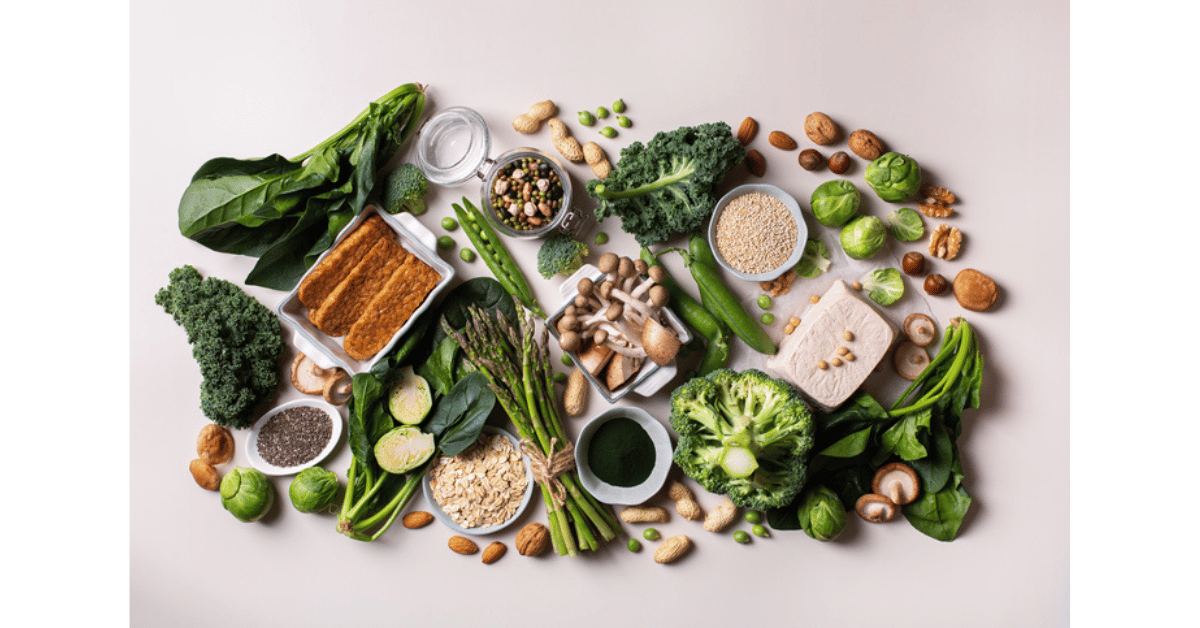
Introduction
In recent years, an exponential growth in plant-based dietary preferences occurred. Many people have adopted a plant-based lifestyle.
Whether you do it for ethical, environmental, or health reasons, it’s your choice. The demand for plant-based foods has increased dramatically.
One concern about plant-based diets is the potential lack of essential nutrients. Essential nutrients such as calcium.
Calcium is commonly associated with dairy products. However, it is crucial to recognise that there are many plant-based sources available. Sources that can provide an adequate amount of this vital mineral.
In this article, we’ll look at how much calcium your body needs. We’ll further focus on ten plant-based foods rich in calcium. And how you can include these foods into your diet to meet your daily needs.
Understanding that there are many vegan-friendly calcium sources available. Individuals can confidently maintain a balanced and nutritious plant-based diet. At the same time, reaping the benefits of optimal bone health and well-being.
What is Calcium?
Calcium is a chemical element found in nature. Its classification is an alkaline earth metal. Calcium holds the atomic number 20 on the periodic table. In its pure form, calcium appears as a dull greyish-white metal.
Calcium is a vital mineral that is crucial in maintaining health and well-being. It is one of the essential nutrients the body requires for various physiological functions.
Within our bodies, calcium serves many purposes. It does not just provide structural support to our bones and teeth.
Calcium is vital in muscle contraction, nerve transmission, and blood clotting. It also regulates enzyme activity. Calcium also helps maintain proper heart function. It also supports healthy communication between cells.
Calcium is essential for your body. It not only contributes to building strong bones and teeth. But it also ensures the optimal functioning of various bodily systems.
Insufficient calcium intake can lead to health issues. Health issues such as osteoporosis, muscle cramps, dental problems, and even cardiovascular disorders.
But how much do you need to function in an optimal health?
How Much Does Your Body Need?
Calcium is in abundance in your body. More than 99 per cent of the calcium is in the form of teeth and bones. The remaining calcium is in your muscles and tissues. It is also circulating through your blood.
In South Africa, the average calcium intake is approximately 400 – 500 mg daily. The calcium intake in the country is half the recommended intake of 1000mg per day.
Your calcium intake also depends on several factors.
But there is no need for concern if you eat plant-based food. Many plant-based foods are rich in calcium.
Remember, calcium is a vital mineral that plays a crucial role in maintaining health. It is one of the essential nutrients the body requires for various physiological functions.
A calcium-rich diet supports the development and maintenance of strong bones and teeth. It also assists in muscle function aids in blood clotting, and contributes to proper nerve function. Thus, ensuring sufficient calcium intake is imperative for individuals following a plant-based lifestyle.
So, let us now explore the world of plant-based calcium alternatives together.
The Top 10 Plant-Based Foods Rich in Calcium
Contrary to popular belief, calcium is not only found in dairy products. Many plant-based foods are rich in this essential mineral.
Here are the top 10 plant-based foods rich in calcium.
Leafy Green Vegetables
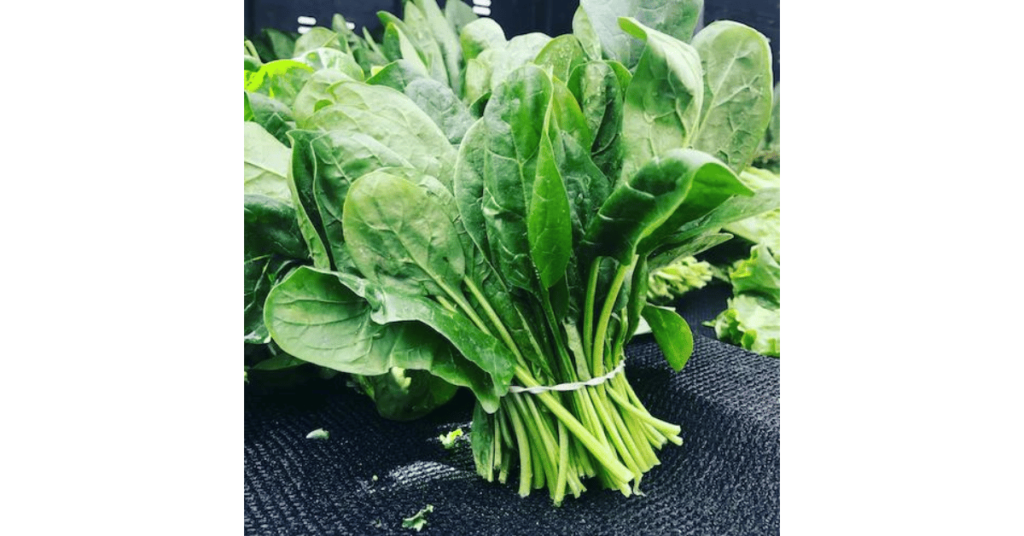
Vegetables like kale, collard greens, Bok choy, and broccoli are good sources of calcium.
Kale contains a whooping 254 mg per 100g of calcium. Let’s delve into kale and see its health benefits.
Kale, a nutrient-dense leafy green, is not only a great source of calcium. It also provides many other essential vitamins. It’s a must for your diet.
When it comes to calcium, kale stands out among other leafy greens. It offers a substantial amount of this mineral.
Kale is an ideal choice for those looking to boost their calcium intake without relying solely on dairy products.
But kale doesn’t stop at calcium. It also contains other vital vitamins and minerals contributing to health and well-being.
It contains vitamin A, which supports healthy vision and immune function. Kale is truly a powerhouse when it comes to nutrition.
Additionally, kale is rich in vitamin K, crucial in blood clotting and bone health. It also provides significant amounts of folate, iron, and magnesium. These are all essential nutrients that support various bodily functions.
Whether you want to strengthen your bones or boost your immune system, it is critical to incorporate kale into your diet. Kale can provide many health benefits. Its nutrient-dense nature ensures that you’re getting more than just calcium. You are also nourishing your body with essential vitamins and minerals.
So why not add this versatile leafy green to your meals (salads, stir-fries, and smoothies) and reap the rewards of its nutritional goodness?
Nuts and Seeds
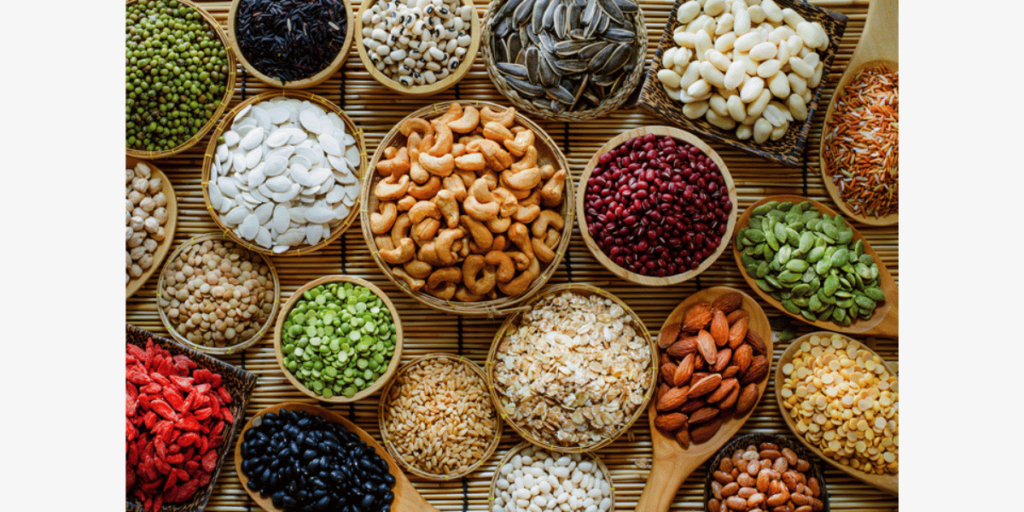
Almonds, chia seeds, and sesame seeds are rich in calcium.
Chia seeds are not only packed with fibre and omega-3 fatty acids. They are rich in plant-based calcium.
Tofu and Tempeh
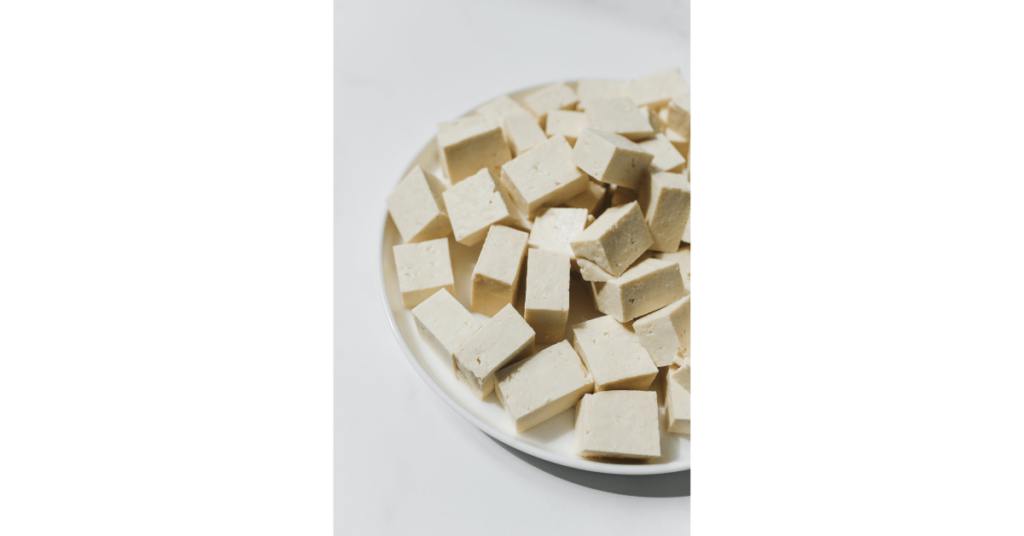
Pexels/Polina Tankilevitch
Tofu is a popular soy-based food. Tofu is rich not only in protein but also in calcium.
This plant-based protein alternative haPexelss become a staple in many diets.
One of the critical advantages of tofu is its impressive protein content. It gives all nine essential amino acids required by the body.
Tofu is rich in complete protein for vegetarians and vegans. Incorporating tofu into your meals can help meet your daily protein needs. And eating tofu can support muscle growth and repair.
Additionally, tofu is an exceptional source of calcium. Calcium is a crucial mineral in maintaining healthy bones and teeth. Calcium is essential for proper nerve transmission, muscle function, and blood clotting.
Including tofu in your diet can contribute to meeting your daily calcium requirements. You can do this without relying solely on dairy products.
Not only is tofu nutritious, but it is also incredibly versatile in the kitchen.
You can grill tofu, stir-fry it, bake it, or blend it into smoothies.
Tempeh comes from fermented soybeans. Tempeh provides reasonable amounts of calcium.
Tahini

Pexels/ENESFILM
Tahini is a creamy paste butter made from sesame seeds. It is not only a delicious addition to various recipes, but it also offers a significant amount of dietary calcium.
This versatile ingredient has gained popularity recently because of its many health benefits and culinary uses.
One of the critical advantages of tahini is its high calcium content.
Calcium is an essential mineral in maintaining strong bones and teeth. It also supports proper muscle function and nerve transmission. Including tahini can be an excellent way to boost your calcium intake. You must include tahini in your diet. Tahini is especially critical for those who follow plant-based or dairy-free diets.
Furthermore, tahini is rich in other essential nutrients. Nutrients such as iron, magnesium, phosphorus, and vitamin E.
These nutrients contribute to health and well-being by promoting energy production. They also support immune function and act as an antioxidant.
You can use tahini in a variety of dishes.
Whether you want to enhance your calcium intake or explore new flavours in your cooking repertoire, it will help you to incorporate tahini into your diet, which is worth considering.
Fruits
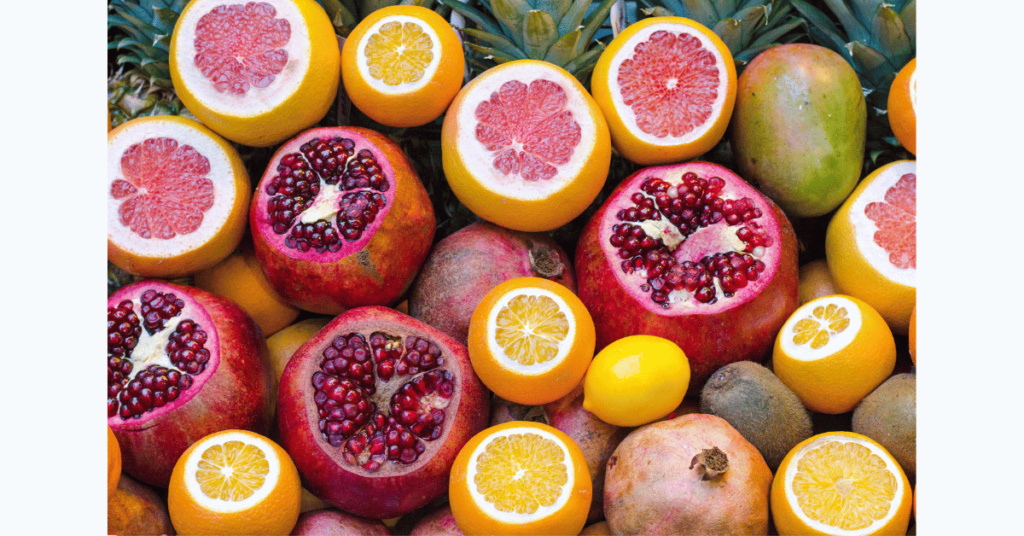
Unsplash/Luke Michael
Various fruits contain reasonable amounts of calcium.
Figs give 18 mg per fig. In contrast, oranges contain approximately 48 to 65 mg per medium-sized fruit.
Figs is a delectable fruit known for its sweet and succulent taste. They are not only a treat for the palate but also a powerhouse of essential nutrients. One standout feature of figs is their high concentration of natural calcium. Calcium makes them an excellent choice for those looking to support their bone health.
Incorporate figs in your diet to ensure you’re getting the necessary nutrients for optimal bone health.
Whether fresh or dried, figs offer a convenient snack. Figs meet your cravings while providing valuable benefits.
Make figs a part of your daily routine and nourish your body with nature’s gift for strong and healthy bones.
What about seaweed? How much calcium does it have in comparison to figs?
Seaweed
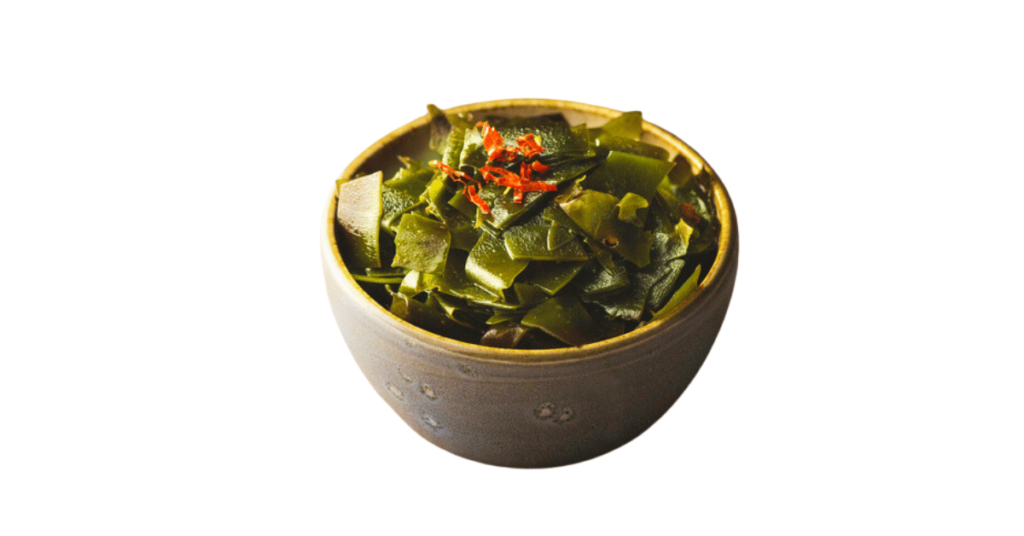
iStock/Luke Michael
Seaweed or sea vegetables are forms of algae that grow in the sea. They’re a food source for ocean life. They range in colour from red to green to brown to black.
Some types of seaweed are protein foods rich in calcium. But, some seaweed may also contain heavy metals and high levels of iodine. High levels of iodine and heavy metals can have adverse effects.
Legumes
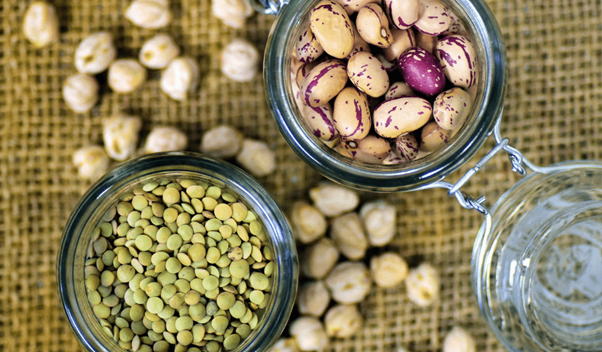
Beans and lentils boost excellent protein. They are also high in calcium.
Various beans are rich in calcium.
Legumes rich in calcium include white beans, navy beans, black beans, and Kidney beans. Chickpeas and lentils are also high in calcium.
Soybeans
Soybeans (Glycine mac) are legumes native to eastern Asia. Soybeans are naturally rich in calcium.
Whole grains
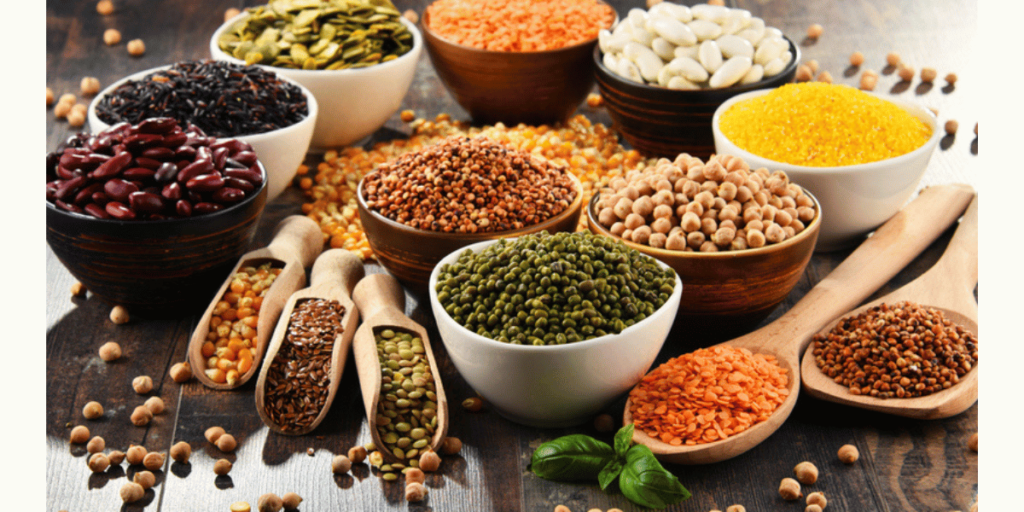
Amaranth and teff are gluten-free ancient grains that provide calcium. You can use these grains as a base for salads. Serve them as a side dish.
Fortified Plant-Based Milk
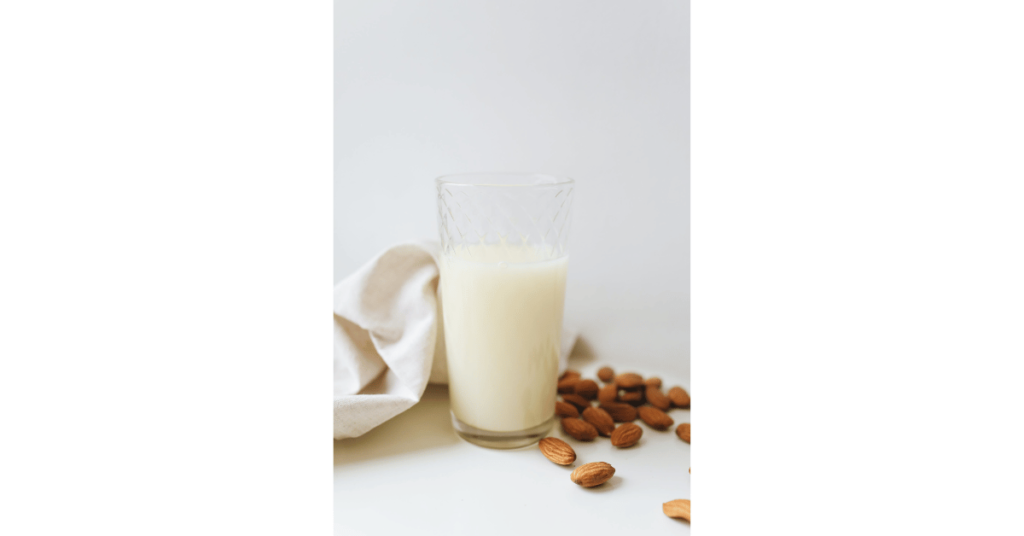
Pexels/Polina Tankilevitch
Fortification with calcium from various plant-based milks, like almond milk, soy milk, and oat milk, provides a dairy-free alternative with similar nutritional benefits.
Incorporating Calcium-Rich Plant-Based Foods in Your Diet
Now that you know about these plant-based sources high in calcium. It is time to start incorporating them into your diet.
Here are a few tips to help you get started:
- Diversify Your Diet: Include a variety of calcium-rich plant foods in your meals. You’ll not only meet your calcium needs but also enjoy a diverse and delicious diet.
- Experiment with Recipes: There are many plant-based recipes available online. Recipes you can creatively use these calcium-rich foods. Try new recipes for variety, exciting and flavourful meals.
- Read Labels: If you opt for fortified plant-based products. You must always check the labels to ensure a large amount of calcium.
- Plan Balanced Meals: Plan your meals to include a mix of calcium-rich foods with other nutrients. A well-balanced diet is crucial to your optimal health.
Conclusion
Incorporating these top 10 plant-based foods into your diet can help ensure you’re getting enough calcium for optimal bone health.
Embracing a plant-based lifestyle does not mean compromising on essential nutrients like calcium.
So, go ahead and explore these delicious and nutritious options. Then pave the way for a healthier you, one plant-based meal at a time.

1 thought on “Comprehensive Guide to Plant-Based Foods High in Calcium”